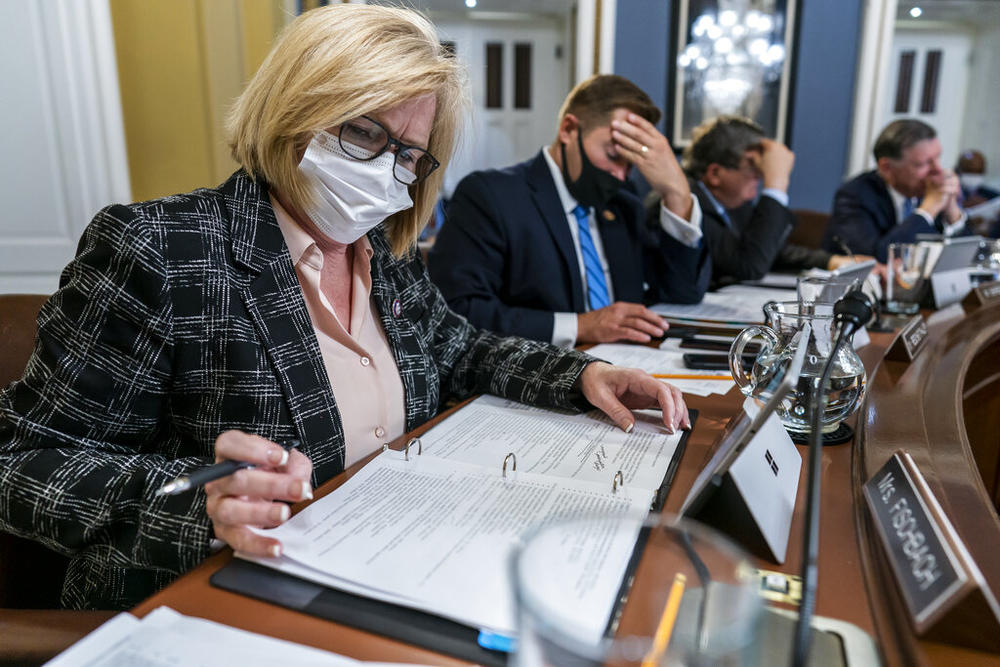
Caption
Rep. Michelle Fischbach, R-Minn., left, and Rep. Guy Reschenthaler, R-Pa., right, take their places on the dais as the House Rules Committee begins work on President Joe Biden's sweeping domestic agenda, the Build Back Better Act, at the Capitol in Washington, Wednesday, Nov. 3, 2021.
Credit: (AP Photo/J. Scott Applewhite)

